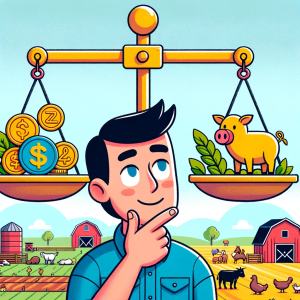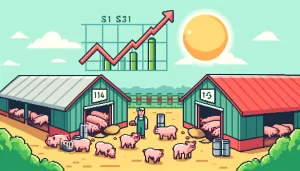
Why Do People Choose Goods Over Cash?
Imagine you’re given a choice: a $10 bill or $10 worth of groceries. Which would you pick? It might seem like an obvious choice—cash gives you more flexibility. But, surprisingly, many people prefer receiving goods instead. This seemingly simple preference can have big implications for how we design social welfare programs. A recent study sheds light on why people might choose goods over cash and what this means for helping those in need.
The Experiment: Cash vs. Goods
Researchers conducted an experiment with 962 farmers in Nepal. They asked participants whether they would prefer 1,000 Nepalese Rupees (about $9) in cash or 1,000 Rupees worth of goods. To the researchers’ surprise, about two-thirds of the participants chose goods over cash.
To understand why, they looked at various factors such as income, savings, and market access. The study found that households with higher non-farm incomes were less likely to choose goods. In contrast, those with limited savings and restricted market access were more likely to prefer goods.
Why Choose Goods?
So, why would someone prefer goods over cash? Here are a few reasons:
- Trust and Assurance: For some, receiving goods provides a sense of security. Cash can be spent on anything, and there’s always a risk it might not be used wisely. Goods, especially essential ones like food or fertilizer, meet immediate needs and reduce the temptation to spend on non-essentials.
- Market Access: Accessing markets to buy goods can be challenging in remote areas. For these households, receiving goods directly saves them the trip and ensures they get what they need.
- Past Experiences: Those who have previously received goods might feel more comfortable and satisfied with this form of assistance. Positive past experiences can influence current preferences.
- Economic Stability: Households with limited savings or irregular incomes might prefer goods to ensure they have the necessary items. This preference acts as a safeguard against economic instability.
Digging Deeper: The Second Experiment
To further explore these preferences, researchers conducted a second experiment. They asked those who initially chose cash if they would switch to goods if their value increased. Surprisingly, even when the value of goods was higher, only 48% of respondents opted for them. This indicated a strong preference for cash among certain groups, even when it meant forgoing additional value.
The Bigger Picture: Policy Implications
Understanding these preferences is crucial for designing effective social welfare programs. One-size-fits-all approaches often fall short because people have different needs and circumstances. Here are some key takeaways for policymakers:
- Tailored Approaches: Programs should be flexible and tailored to different groups. For instance, people in remote areas might benefit more from goods, while those with better market access might prefer cash.
- Building Trust: It is vital to ensure that recipients trust the system and feel secure with the assistance they receive. This trust can be built through transparency and consistent aid delivery.
- Economic Support: Addressing the economic stability of households can influence their preferences. Providing a mix of goods and cash based on individual needs might be the most effective strategy.
Real-Life Connections: How It Affects You
You might wonder how these findings apply to your daily life. Think about gift cards versus cash gifts. Sometimes, people prefer gift cards because they ensure the recipient spends the money on something enjoyable or useful. Similarly, parents might prefer providing their children with school supplies rather than cash to ensure it’s spent wisely.
Discussion Questions
- Have you ever received a gift card and preferred it over cash? Why or why not?
- How do you think social welfare programs in your community could be improved by considering the preferences of recipients?
Conclusion
This study offers valuable insights into the complex decision-making process behind choosing goods over cash. It highlights the need for flexible, tailored approaches in social welfare programs to meet diverse needs effectively. By understanding these preferences, we can design better programs that provide meaningful support to those in need.
Join the Science Adventure:
Stay updated with the latest discoveries in science! Our weekly newsletter is perfect for teachers and science enthusiasts. Get the newest research, major breakthroughs, and fascinating stories delivered to your inbox for free. Enhance your teaching and learning. Subscribe today!



